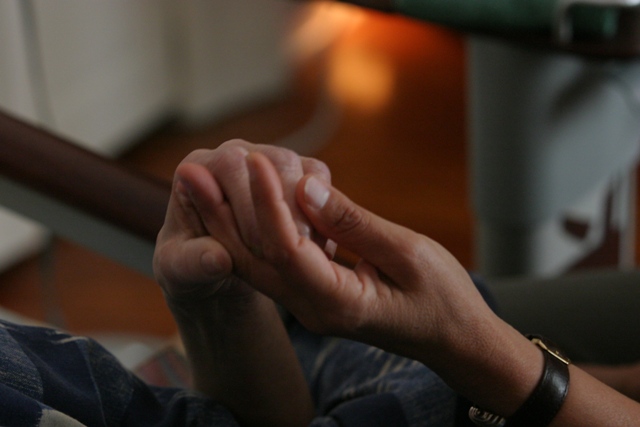
Speaking of palliative care awareness this week, in October, The Joint Commission launched an educational campaign called “Speak Up: What you need to know about your serious illness and palliative care.” The campaign helps educate the public on how and when to receive palliative care and emphasizes the focus on palliative care as designed for quality of life and not only end of life.
Ronald M. Wyatt talks about the Speak Up educational campaign. (Watch at YouTube)
The basic framework of the Speak Up campaign urges patients to:
| Speak up if you have questions or concerns, and if you don’t understand, ask again. It’s your body and you have a right to know.
Pay attention to the care you are receiving. Make sure you’re getting the right treatments and medications by the right health care professionals. Don’t assume anything. Educate yourself about your diagnosis, the medical tests you are undergoing, and your treatment plan. Ask a trusted family member or friend to be your advocate. Know what medications you take and why you take them. Medication errors are the most common health care errors. Use a hospital, clinic, surgery center, or other type of health care organization that has undergone a rigorous on-site evaluation against established state-of-the-art quality and safety standards, such as that provided by The Joint Commission. Participate in all decisions about your treatment. You are the center of the health care team. |
“Seriously ill patients have special physical, emotional and spiritual needs,” says Ronald M. Wyatt, M.D., M.H.H., medical director, Division of Healthcare Improvement, The Joint Commission. “By considering the option of palliative care, these patients and their families may find that palliative is a way to prevent or relieve suffering.”
Learn more about palliative care:

 The Speak Up Program Urges People to Take an Active Role in Their Health Care
The Speak Up Program Urges People to Take an Active Role in Their Health Care


 The Spiritual Symbolism of Cardinals
The Spiritual Symbolism of Cardinals
 Meaning-Focused Grief Therapy: Imaginal Dialogues with the Deceased
Meaning-Focused Grief Therapy: Imaginal Dialogues with the Deceased















